It may seem hard to believe, but there was a time when the British Royal Navy asserted the right simply to capture American sailors and press them into service in the British Navy.
Even though the American Revolution was over and American commerce ships regularly traveled to European ports, including British ports, the British Empire was determined to assert what control it could over its former colonies.
After the Revolution, British ships would from time-to-time board American ships and take some of their sailors to press into service for the Royal Navy. Thanks to Britain’s famed dominance of the high seas, what was the United States going to do about it?
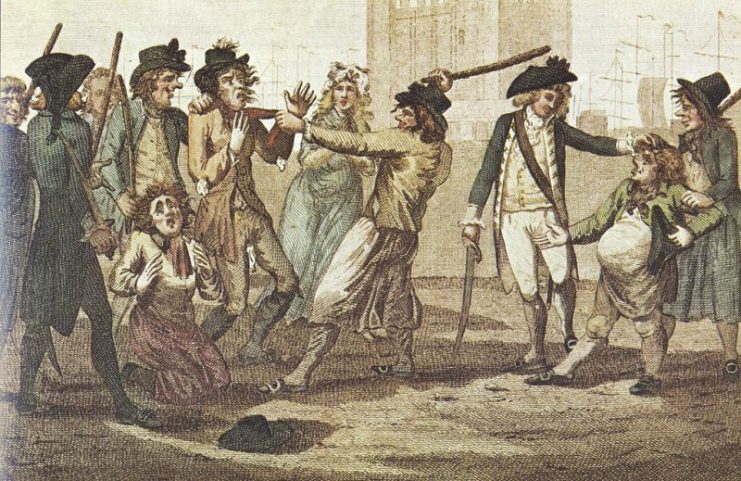
British Justification and American Reaction
The Royal Navy had been pressing seamen from civilian vessels into military service for the duration of its existence. However, those civilians had always been British subjects. Obviously, the Americans had become independent and did not consider themselves subjects of the British Empire any more.
So, how was this tactic justified? It mainly came down to differing ideas of citizenship.
The English argued that all Americans born before the Revolution had been born British subjects and did not lose that citizenship due to the Revolution. Therefore, anybody on an American ship who had been born during the colonial era could rightfully be taken and pressed into service for the Crown.
Additionally, many deserters from the British Navy had joined American companies in order to receive better pay. Some of them had obtained naturalized American citizenship. From the American view, this meant they were no longer British subjects, but the British did not believe that one could simply denounce British citizenship.
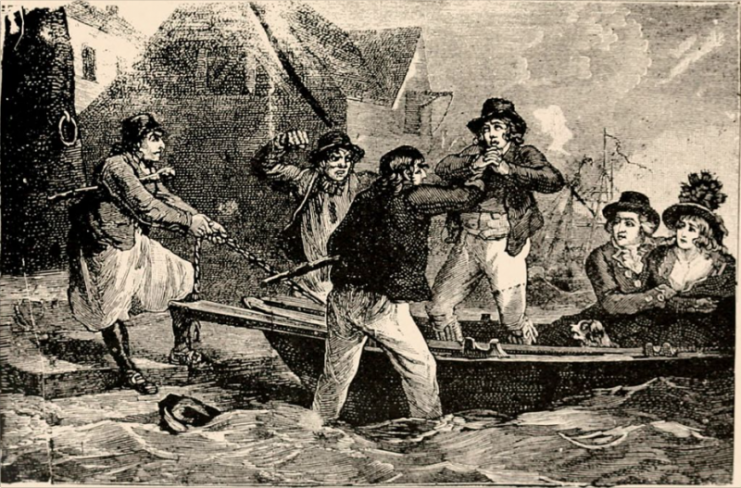
Impressment increased during the Napoleonic Wars as the Royal Navy expanded and needed to replace losses and desertions. Out of the 5,000 or so sailors pressed into service by the Royal Navy, about 1,300 turned out to have been born in America.
This unsurprisingly led to outrage in the United States. Even worse, some of these Americans were forced into combat, with the result that men died fighting for a country they thought they had left behind in 1776.
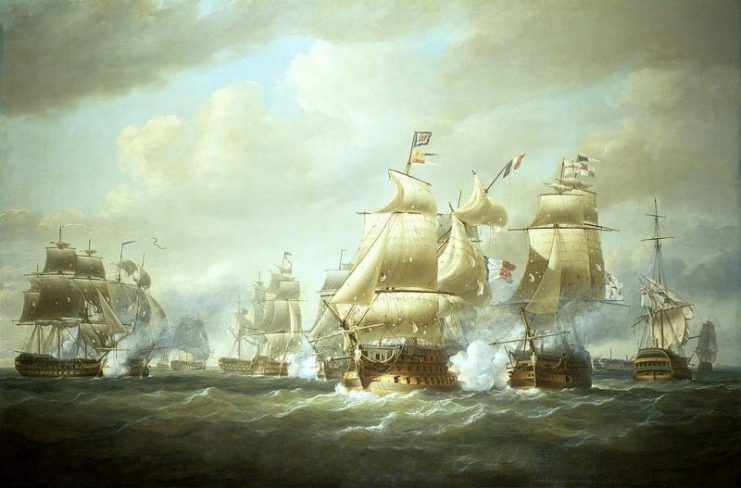
A Flashpoint
The Chesapeake–Leopard Affair brought impressment into sharp focus in America. The HMS Leopard was a fourth rate ship of the line. It was in the Chesapeake Bay looking for deserters and wanted to board American ships to find them.
The American frigate Chesapeake was taken off guard by the Leopard‘s request to board to search for deserters and refused the request. In response, the Leopard fired several broadsides into the Chesapeake. The Chesapeake soon surrendered.
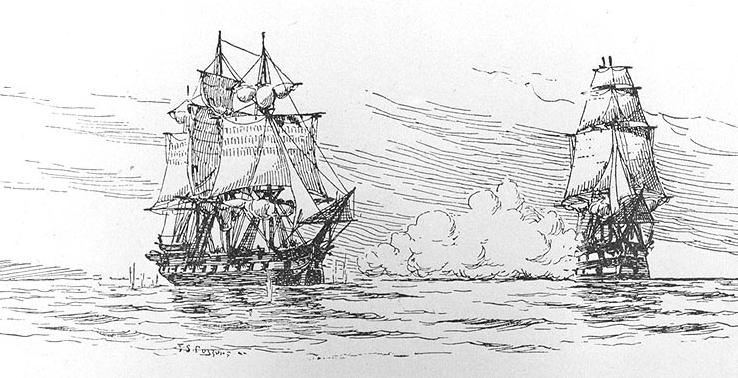
The British took no casualties in this skirmish, while the Americans suffered four killed, 17 wounded, and four captured. One of those captured was later hanged by the British for desertion.
Americans were outraged and saw this as a clear violation of their sovereignty. How dare the British attack and kill Americans? And in American waters no less!
In response, Congress and President Thomas Jefferson passed the Embargo Act of 1807, which undermined British efforts against Napoleon.
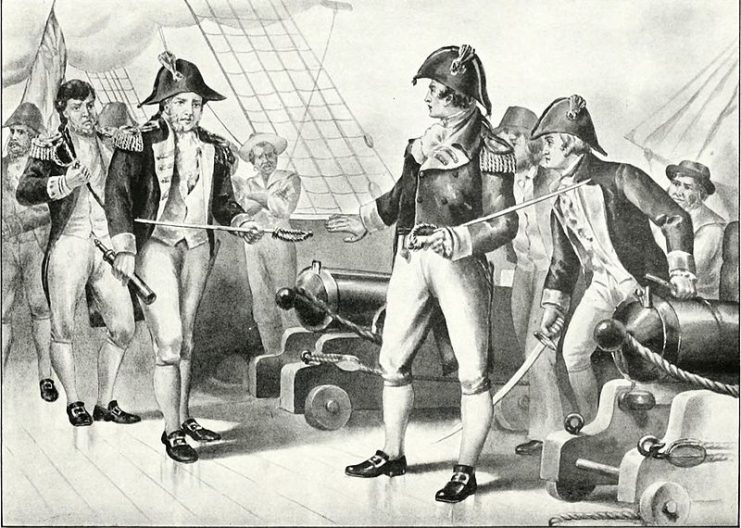
War of 1812
Impressment was not the only cause of the War of 1812, but it was a key justification for many Americans. After decades of trying to end impressment and free Americans wrongly impressed by the British, James Madison signed the declaration of war.
The American declaration of war was a single paragraph and did not specify any particular justifications. However, among Americans and historians, it is widely understood that impressment was a principal cause for the war.
Many British sources point out that there were more selfish motivations as well.
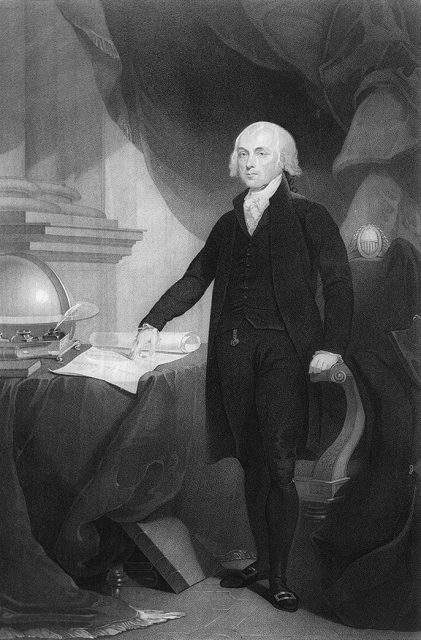
In private, Thomas Jefferson made his desire to conquer Canada clear. Although Jefferson had been out of office for nearly four years by the time the war was declared, Americans still had their eyes set on Canada.
They did not expect an invasion of Canada to be difficult since so many British forces were engaged in Europe against Napoleon.
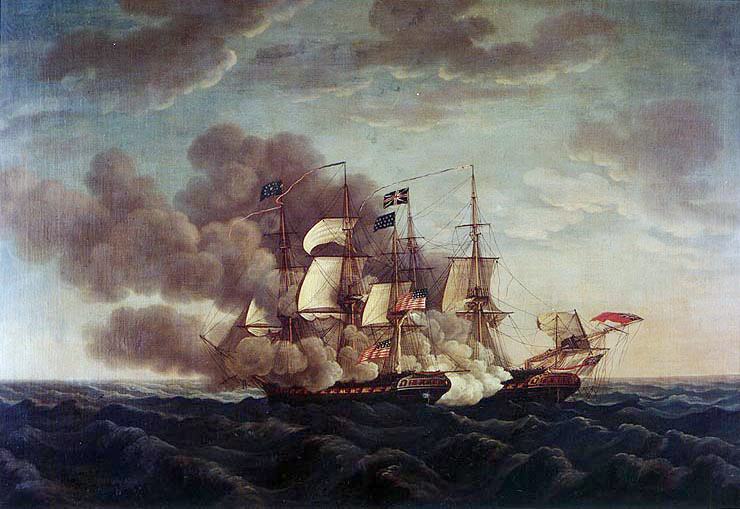
Due to their divided focus, the British could only send lesser warships to North America, and so the United States had some success in the war at sea. American privateers wreaked havoc on British merchant shipping.
In contrast, Americans fared far worse in the war on land. Repeated American attacks on Canada failed, and the British famously burned the White House after capturing Washington D.C.
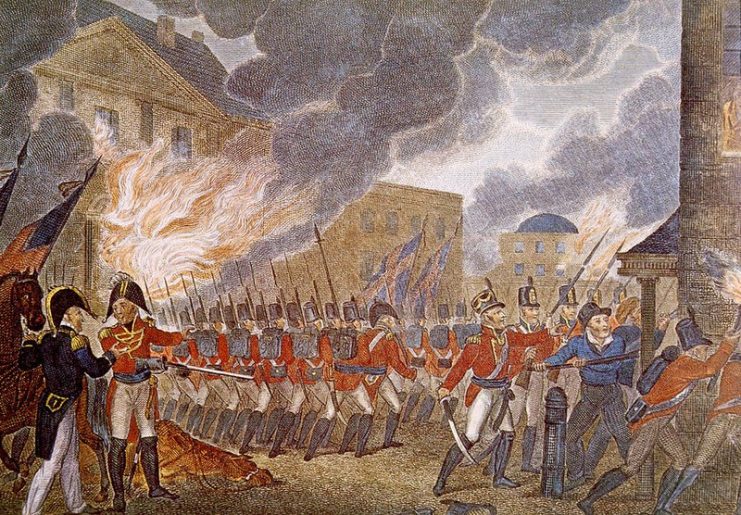
A turning point in the land war came during the successful American defense of Baltimore. During this battle, Fort McHenry refused to surrender despite heavy bombardment from British warships, an event that later inspired Francis Scott Key to write The Star Spangled Banner.
The war was ultimately inconclusive. The Treaty of Ghent ended the conflict and restored the antebellum borders. The Americans won a final battle – the Battle of New Orleans – with the help of Choctaws and pirates. However, this battle was inconsequential because the Treaty had already been signed, unbeknownst to the combatants.
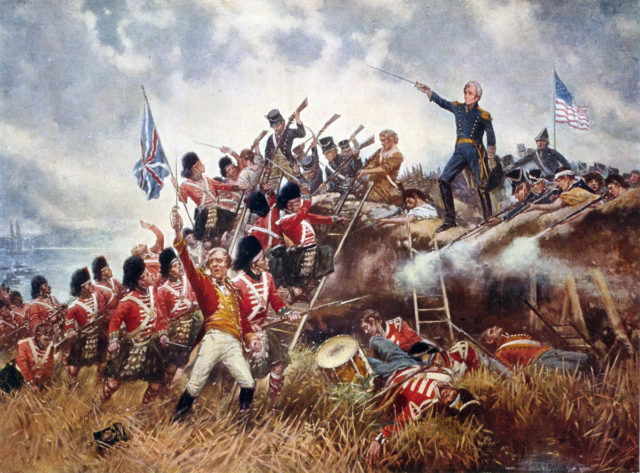
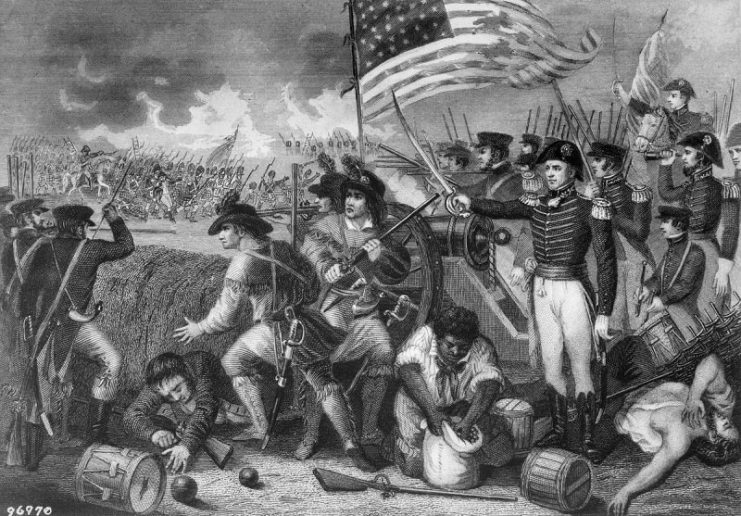
Legacy
The legacy and the amount of attention paid to the war differs drastically from nation to nation.
Americans generally view it as a draw that ensured the continued sovereignty of the United States. Canadians see it as a defining moment in their history that allowed them to avoid conquest by the United States. For the Native Americans, the war was a disaster.
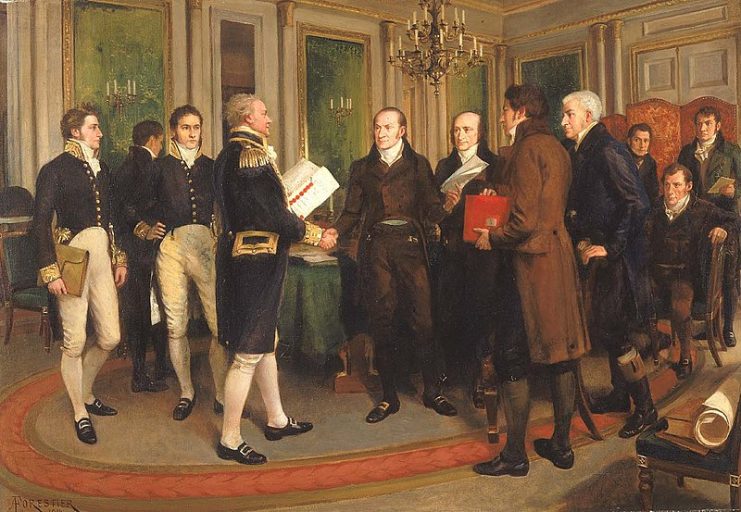
Read another story from us: Defending the North: The Fall of Fort Mackinac in the War of 1812
The British hardly pay attention to it at all, since the Napoleonic Wars were of much greater consequence to them.
Once Napoleon was defeated, the British no longer had a pressing need for more seamen to maintain their navy. The British never admitted that impressment itself was wrong, and they often viewed American threats to go to war over it as histrionic and childish. However, they did cease the practice.
